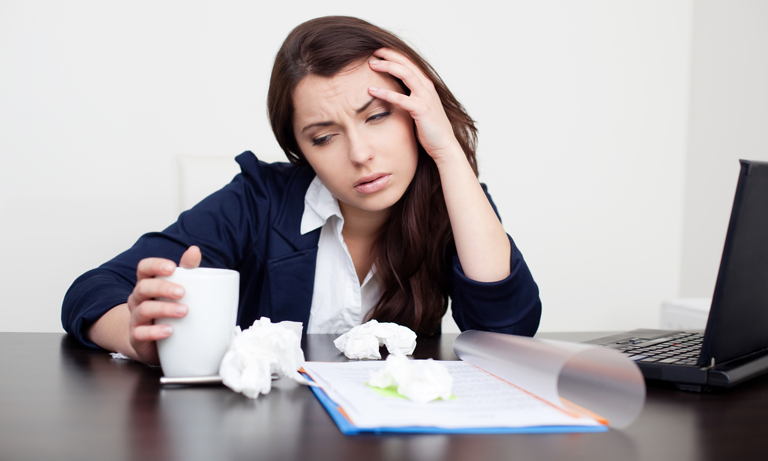 It’s thought that hay fever, or allergic rhinitis to give it its medical name, affects between 10%-30% of UK adults every year
It’s thought that hay fever, or allergic rhinitis to give it its medical name, affects between 10%-30% of UK adults every yearThis is a sharp rise from the mid-1990s, where medical studies revealed a height of 15%. This rise has developed, in part, because of increased pollen levels overall.
Those who suffer from hayfever will no doubt know all about the symptoms, which can range from mild to very severe, depending on the severity of the patient’s allergy. These symptoms include itchy eyes, nose and throat, blocked sinuses and nose, tiredness, post-nasal drip and breathing issues.
These can all have an impact on a person’s workplace performance, particularly when the workload involves extreme concentration and attention to detail. Dr Jean Emberlin, an allergy specialist, suggested that if circumstances are extreme enough to impact on your job performance, perhaps a day off is the best remedy. She highlighted jobs involving driving being a particular risk.
It’s thought that over £7 billion is lost by the UK economy every year due to lost productivity related to hay fever and hay fever related illnesses. Asthma is one of these additional illnesses. Those who have asthma are more likely to have a severe attack during hay fever season, as the allergy can trigger coughing and breathlessness.
While action can be taken to help prevent this, such as taking over the counter or prescription antihistamines and carrying an inhaler, for some, the most reasonable way to avoid an attack is to stay indoors. It is also a good idea for those suffering to change clothes and have a shower when returning home from work to remove pollen gathered on their clothing.
As a sensible employer, there are various suggestions you can make to help your staff cope with these illnesses. Closing the windows in your workplace to prevent pollen migration may help, particularly in the morning when the pollen count is at its highest. Keeping a fresh supply of water available to encourage your staff to stay hydrated is also recommended.
But for many, it is a case of managing your staff as they manage their own symptoms, aside from taking necessary medicine and visiting their doctor or pharmacist if their symptoms are particularly bad. Medicines can come in the form of tablets, eye drops and nasal sprays. Vitamins are also recommended to help boost a compromised immune system.
Thankfully, the pollen count begins to decrease around late June, with a small spike in July before falling steadily throughout the remaining months of the year. This will no doubt be welcome news to many people reading this.
Recruiters love this COMPLETE set of Accredited Recruitment & HR Training – View Training Brochure








